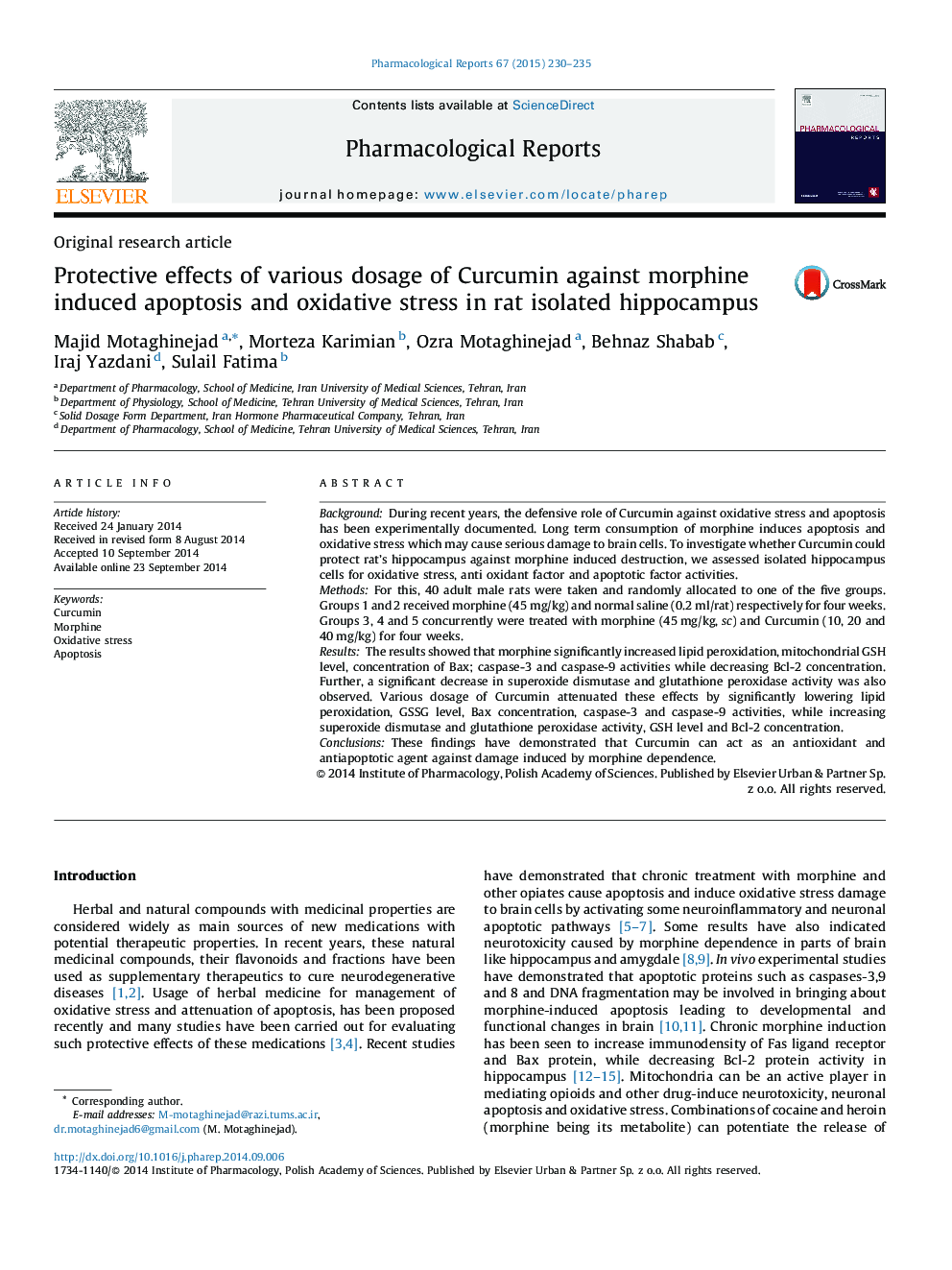| Article ID | Journal | Published Year | Pages | File Type |
|---|---|---|---|---|
| 2011984 | Pharmacological Reports | 2015 | 6 Pages |
BackgroundDuring recent years, the defensive role of Curcumin against oxidative stress and apoptosis has been experimentally documented. Long term consumption of morphine induces apoptosis and oxidative stress which may cause serious damage to brain cells. To investigate whether Curcumin could protect rat's hippocampus against morphine induced destruction, we assessed isolated hippocampus cells for oxidative stress, anti oxidant factor and apoptotic factor activities.MethodsFor this, 40 adult male rats were taken and randomly allocated to one of the five groups. Groups 1 and 2 received morphine (45 mg/kg) and normal saline (0.2 ml/rat) respectively for four weeks. Groups 3, 4 and 5 concurrently were treated with morphine (45 mg/kg, sc) and Curcumin (10, 20 and 40 mg/kg) for four weeks.ResultsThe results showed that morphine significantly increased lipid peroxidation, mitochondrial GSH level, concentration of Bax; caspase-3 and caspase-9 activities while decreasing Bcl-2 concentration. Further, a significant decrease in superoxide dismutase and glutathione peroxidase activity was also observed. Various dosage of Curcumin attenuated these effects by significantly lowering lipid peroxidation, GSSG level, Bax concentration, caspase-3 and caspase-9 activities, while increasing superoxide dismutase and glutathione peroxidase activity, GSH level and Bcl-2 concentration.ConclusionsThese findings have demonstrated that Curcumin can act as an antioxidant and antiapoptotic agent against damage induced by morphine dependence.
